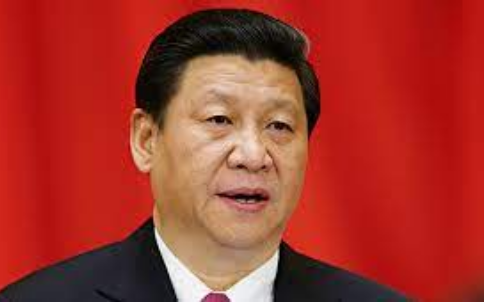In Confucian terms, reverence for a dead ancestor is at the very root of ‘Xiao’ or filial piety. Any transgression is a mortal sin, and this is what Xi Jinping has committed by trying to replace Mao’s Thoughts with his own. And he has done it with uncharacteristic haste for a Chinese, offending another ancestor, Deng Xiaoping, who had wisely counselled his successors to ‘bide their time.’
While Chinese power and influence has grown day by day over the past two decades, it has neither the military nor, more importantly, the economic strength of the United States of America to brazenly challenge that power, even within its own waters. Undoubtedly, China can do so one day, but that time is not today. The rush to force the issue was a personal choice, for personal power and aggrandisement. Xi’s colleagues are waiting, with characteristic Chinese patience, for one misstep to lead to another and bring about his downfall, when they will quickly re-write China’s current history, showing Xi to have always been unworthy, and relegate him to the same dustbin where Lin Biao and others before him reside.
The prolonged protests of the democracy movement in Hong Kong offered the Chinese authorities many lessons on how to tackle such youthful enthusiasms in the context of a modern well-to-do society, but Xi’s impatience pushed for a closure, and the questions first raised in Tiananmen Square were left hanging over China’s future.
Policy of consultations abandoned
Authoritarian disregard for consultation and compromise have raised alarm bells in Taiwan and hardened softening positions. Xi’s latest word that ‘reunification will happen’ is nothing short of an unnecessary threat. Chinese Airforce encroachment of Taiwan’s airspace is also needless sabre-rattling. This bullying has only increased Chinese resolve in Taiwan that they will not be bulldozed into submission like compatriots in Hong Kong. With more circumspection, Xi could have achieved much more.
While many of the dismal stories concerning the handling of the Uighur communities in China’s far west can be dismissed as the usual obfuscation of Western disinformation campaigns, a disturbing residue of fact remains. While re-education of youth and prevention of disaffection among tribal communities is to be preferred to later rabid Islamophobia and incarceration of many innocent persons, à la the practice at the Guantanamo detention camp, dragooning of people into forced acceptance of a new ideology can never be successful. Xi would have done well to remember how even during the chaotic days of the Cultural Revolution, the last emperor was carefully helped to follow Voltaire’s advice and find peace tending a garden.
Useless confrontation
The new and perplexing military confrontation along the Indo-Tibetan border cannot serve any useful Chinese purpose. The Indian external affairs minister has responded neurotically calling China ‘a clear and present danger.’ Does it serve China’s interests to push India closer into an American embrace? Xi’s purposeless actions merely irritate India; they cannot lessen the gravity of the American encirclement ranging all the way from Diego Garcia, just to the south of India, all the way up to South Korea. He would do well to recapitulate how Mao handled the border confrontation long ago.
The India-China war of 1962 was occasioned, like many wars, by the misperceptions of both governments. Zhou Enlai’s earnest attempts in Delhi in 1959 to bring about mutual understanding were rebuffed by Indian ministers, most arrogantly so by Morarji Desai. Krishna Menon had blind belief that he could prevent a Chinese attack. Nehru had the arrogant self-belief that he was the pre-eminent leader of Asia. The Chinese for their part misread the situation as real antagonism, rather than ‘brown sahib’ conceit.
Mao’s perception of India-China ties correct
The telling Indian defeat, mostly caused by woeful unpreparedness and poor tactical handling, still leaves the Indian establishment smarting. The Commander-in-Chief was demoralized, and there was talk in Delhi circles that ‘the Chinese will be in Calcutta in two weeks.’ Nothing of the sort happened. The Chinese called a unilateral ceasefire and withdrew even from the northeast territories they had claimed as traditionally Chinese. Later during the 1971 war when India helped liberate Bangladesh, Kissinger and Nixon tried to convince the Chinese to threaten India, but Mao pointedly refused. What is clearly in Chinese interests, ever since the Dalai Lama sought refuge in India, is a clearly and continually demonstrated Indian assurance that the long border will remain quiescent and no American adventurism will be permitted anywhere. Mao’s decision to let matters be was based on his recognition that the best defence for the long southern border was to leave India in an avowed non-aligned position. Xi in his haste to show himself as a strong leader, a false persona much sought after these days, has seriously compromised the security of his country.
Economic power critical
While military hardware, ribbons, and flypasts may readily catch the evening news, what really builds the power of a country are its economic foundations, especially in per capita terms. This was established as a strategic fact as early as the America Civil War when the industrialized North beat the better-led, more committed armies of the South. Both World Wars were decided by the economic power of the Allies, and not by the military skill of the Wehrmacht. China today badly needs the economic and trading embrace of the United States to reach a position of supremacy. The American empire is still several decades away from decaying to the point of letting go. Nothing other than Xi Jinping’s personal ambition pointed to this moment for the Chinese to cease ‘biding their time.’ He has retarded China’s progress perhaps by a couple of decades. He has exposed himself dangerously to the envy of his waiting colleagues.




